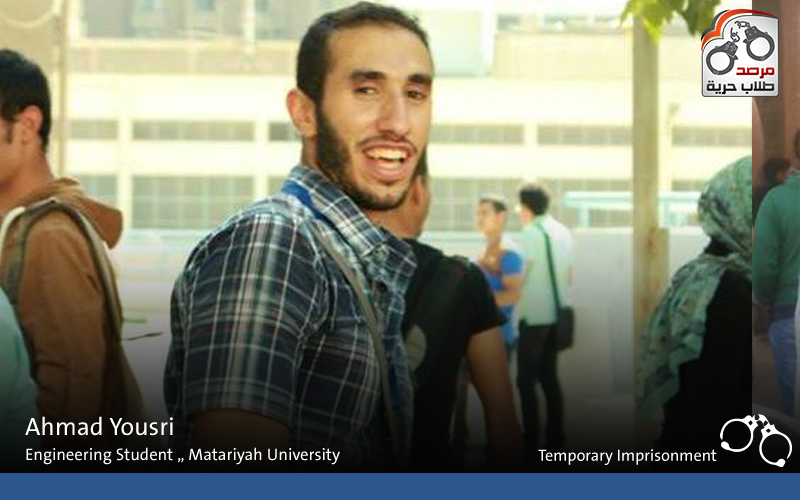Abbasid court decided on Thursday, 19.11.2015 to imprisonment “Ahmed Yousry”2nd year student at the Department of Mechanics engineering Matariya University for a period of fifteen days on charges of : belonging to the “students against the coup” and participation in acts of violence .
Noting That, The student had been broken into his home by security forces on Monday, 05/10/2015 where he was arrested arbitrarily without security clearance or a court order reasoned arrest and then was taken to state security headquarters in Nasr City “Lazoghli” where he remained under enforced disappearance for more than forty-four days,then was first viewed by the Public Prosecution, which remained him in custody pending investigations without making any serious investigations into the crime of enforced disappearance suffered by the student nearly a month and a half.
The student arbitrary arrest and force disappearance both are flagrant violation of the laws and international conventions to which Egypt has signed and ratified, particularly as stated in Article 55 of the Egyptian Constitution and the current, which states that: “Every person who is either arrested, detained, or his freedom is restricted shall be treated in a manner that maintains his dignity. He/she may not be tortured, intimidated, coerced, or physically or morally harmed; and may not be seized or detained except in places designated for that purpose, which shall be adequate on human and health levels. The State shall cater for the needs of people with disability. Violating any of the aforementioned is a crime punished by Law. An accused has the right to remain silent. Every statement proved to be made by a detainee under any of the foregoing actions, or threat thereof, shall be disregarded and not be relied upon”
As well as article 54 which states: ” Personal freedom is a natural right, shall be protected and may not be infringed upon. Except for the case of being caught in flagrante delicto, it is not permissible to arrest, search, detain, or restrict the freedom of anyone in any way except by virtue of a reasoned judicial order that was required in the context of an investigation, every person whose freedom is restricted shall be immediately notified of the reasons therefore; shall be informed of his/her rights in writing; shall be immediately enabled to contact his/her relatives and lawyer; and shall be brought before the investigation authority within twenty four (24) hours as of the time of restricting his/her freedom.’

Comments